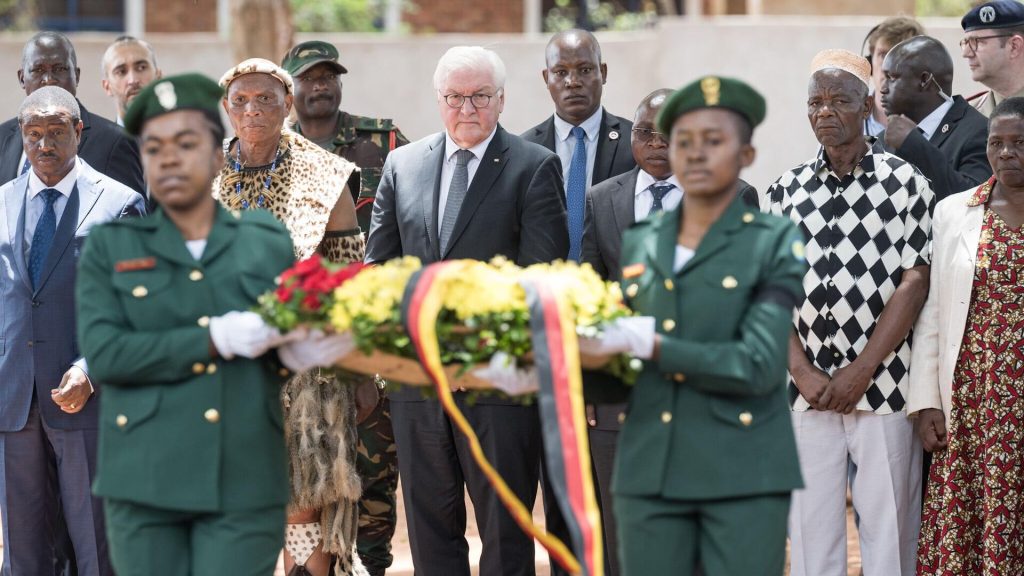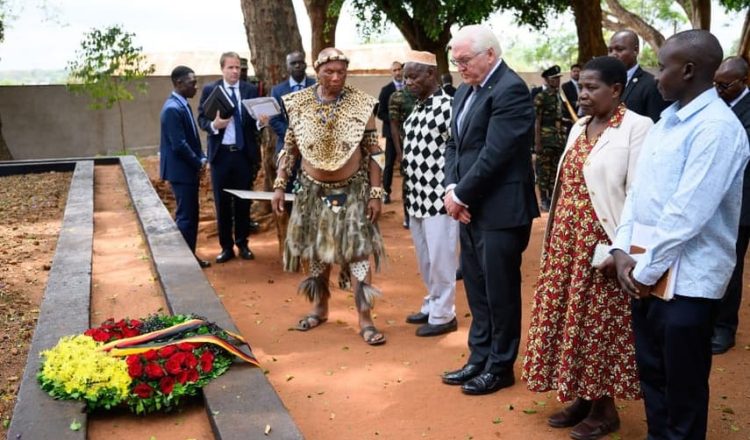German President Frank-Walter Steinmeier has extended a heartfelt apology to Tanzania for the colonial atrocities committed by German forces during the early 1900s, particularly during the Maji Maji rebellion. The President’s request for forgiveness was made during his visit to Tanzania, and it marks a significant step in addressing a painful chapter in history.
The Maji Maji rebellion, one of the bloodiest anti-colonial uprisings in history, was provoked by a German policy aimed at forcing indigenous people to cultivate cotton for export. The result was the tragic loss of nearly 300,000 lives. President Steinmeier chose to make this historic apology at the very site where the rebellion originated, a museum in Songea, Tanzania.
“I would like to ask for forgiveness for what Germans did to your ancestors here,” President Steinmeier stated, acknowledging the shared history between Tanzania and Germany. “What happened here is our shared history, the history of your ancestors, and the history of our ancestors in Germany.”

The President’s apology not only addresses the painful past but also signifies the commitment of both nations to come to terms with their history. President Steinmeier highlighted the need for “communal processing” of this shared history and vowed to bring these stories back to Germany so that more people in his country can understand and learn from them.
The visit also included a meeting with the descendants of Chief Songea Mbano, one of the Maji Maji leaders who was executed in 1906 and is now regarded as a national hero in Tanzania. The President expressed Germany’s intention to make efforts to find Chief Songea Mbano’s remains. This is an important step in acknowledging and addressing the legacy of collecting remains as “trophies” during the colonial era.
Furthermore, during President Steinmeier’s visit to Tanzania, he met with President Samia Suluhu Hassan in Dar es Salaam, where he pledged Germany’s commitment to working with Tanzania on the “repatriation of cultural property.” This move is a significant recognition of the need to right historical wrongs and return cultural artifacts and heritage to their places of origin.
While the apology has been welcomed by many, some have noted that it doesn’t fully address the gravity of the crimes committed during the colonial era. Tanzanian historian Mohamed Said stated that the actions taken by German forces, such as setting farms on fire to starve people and prevent them from resisting, should be brought to justice in today’s world.
This apology follows a similar acknowledgment by German authorities in 2021 of the crime of genocide during their occupation of Namibia in southern Africa. Financial aid of over $1.34 billion was announced to address this acknowledgment.
The German President’s apology is part of a growing global recognition of the need to address historical injustices and atrocities committed during the colonial period. It is a significant step towards reconciliation and mutual understanding between nations.





